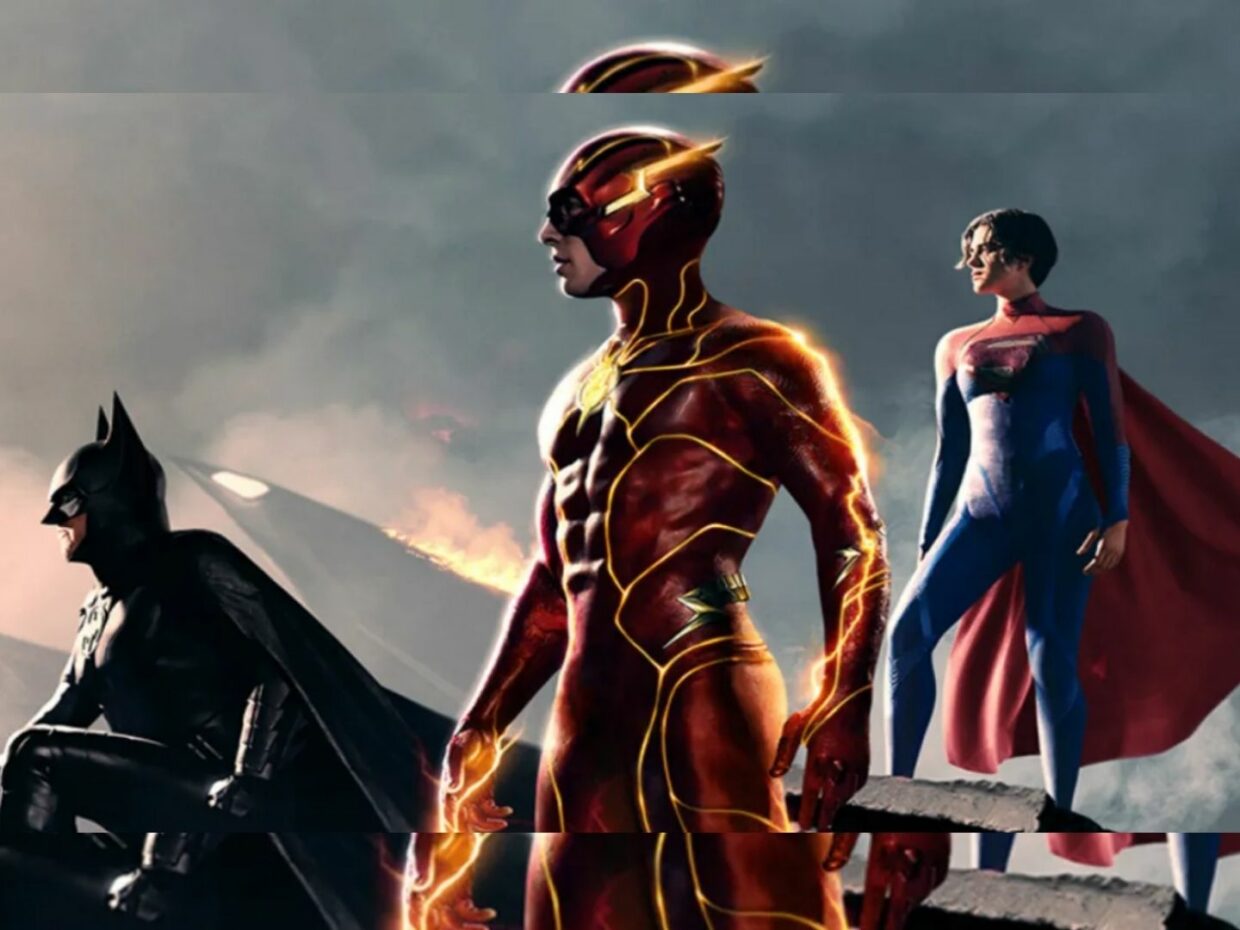By Chris “Boogie” Brown
After years of development, multiple delays, and changes in directors, DC’s “The Flash” has finally made its way to the big screen. The film is directed by Andy Muschietti, known for his work on the horror films “IT: Chapter 1” and “IT: Chapter 2”. The lead role of Barry Allen, also known as “The Flash,” is played by Ezra Miller, who previously appeared in “Batman v Superman: Dawn of Justice” (2016) and “Zack Snyder’s Justice League” (2021).
In “The Flash,” Barry Allen is living in Central City, adjusting to his responsibilities as a member of the Justice League. He is also trying to prove his father’s innocence in the death of his mother many years ago. Barry runs out of options and decides to experiment with time travel to change the past, hoping to save his family and clear his father’s name. However, this decision unintentionally alters the future and traps Barry in an alternate reality where a familiar but threatening alien force emerges. To save the world, Barry seeks out his fellow Justice League members, only to find that they are different from the heroes he remembers. Together, they must unite to prevent the destruction of the world and help Barry return to his own time.
“The Flash” is an entertaining comic book film that blends action and comedy. Ezra Miller’s portrayal of Barry Allen continues the character’s role as a source of comic relief. However, amidst the humor, there is a serious and emotional storyline involving Barry’s mother, loosely based on the 2011 “Flashpoint” comic. This storyline drives the film and the characters’ motivations.
Barry’s alteration of the past has significant consequences, causing disruptions in the space-time continuum and leading to interactions between characters from different timelines. The time travel element of the story is cleverly explained and engaging to watch as Barry realizes the damage he has caused and tries to fix it. The resulting chaos sets off a series of events filled with humor, action, and beloved DC characters from different eras.
“The Flash” boasts an all-star cast, with some surprises thrown in. Ezra Miller’s dual performance as two versions of Barry Allen showcases his acting versatility, capturing different tones, humor, vulnerability, heroism, and emotional moments. Ben Affleck returns as Bruce Wayne/Batman and delivers a fantastic performance, both in action scenes and as a mentor to Barry. Sasha Calle makes her DC debut as Supergirl, portraying the power and determination of the character. The film also brings back General Zod and Faora, along with their Kryptonian soldiers from “Man of Steel” (2013), providing exciting clashes with the heroes.
One of the film’s nostalgic highlights is Michael Keaton reprising his role as Bruce Wayne/Batman from the original Batman films. Keaton’s Batman steals the show with amazing action sequences that thrilled audiences with childhood delight. Fans of Keaton’s Batman films will appreciate the return of iconic elements such as Wayne Manor, the Batcave, Batmobile, Batwing, and other Easter Eggs from Tim Burton’s classics.
For fans of Zack Snyder’s DC trilogy (“Man of Steel,” “Batman v Superman,” and “Zack Snyder’s Justice League”), “The Flash” is reassuringly canon to the foundation laid by Snyder. While the film has a different tone, aesthetic, structure, and pacing, it acknowledges the origins of this iteration. It features characters cast by Zack Snyder, revisits scenes from “Man of Steel,” includes the tactical carrier from “Zack Snyder’s Justice League,” and references events from that film. The Snyderverse remains intact and may be explored further in the future.
However, the movie’s current time-traveling plot device opens up the expanded multiverse, allowing DC characters from alternate and intersecting timelines to appear in this film and future ones. While this concept may sound complex, the film’s explanation and execution are surprisingly easy to follow.
As entertaining as “The Flash” is, I have a couple of critiques to mention. Regarding the humor, while many comedic moments were funny, there were jokes that didn’t land well, felt forced, or were somewhat lowbrow in nature. Additionally, some of the situational humor, while amusing, seemed to linger on for too long at times.
Furthermore, the visual effects in the film, while generally serviceable, are inconsistent and could have benefited from more work in post-production. Fortunately, these moments of subpar VFX didn’t detract from the story or the overarching premise but did leave me wishing for a more polished execution of some of the final visuals.
“The Flash” has been hailed as “The Greatest Superhero Film Ever” by certain industry executives at Warner Bros. Discovery. However, having seen the film twice, I personally don’t find that statement to be true. If you’ve heard similar claims, my advice would be to temper your expectations based on those early opinions. That being said, “The Flash” still possesses several endearing attributes that make it a highly entertaining film. It features great performances, particularly the show-stealing work by the legendary Michael Keaton, a clever premise, an emotionally driven core story, exciting action sequences, solid direction by Andy Muschietti, and surprising character appearances throughout.
When it comes to “The Flash,” general audiences will find entertainment in the whimsical nature of the Barry Allen character(s), the film’s comedic aspects, and the thrills and action it offers. However, longtime DC fans will have an even deeper appreciation for the nostalgic elements on display and how the film pays homage to the foundational DC characters and films that came before it.
While “The Flash” may not be the ultimate game changer for the cinematic superhero genre, as previously suggested by the press, it certainly provides a fun ride that is entertaining, nostalgic, touching, and pays great homage to some of the most iconic superheroes in DC’s history. “The Flash” debuts in theaters everywhere on June 16th – Enjoy!
